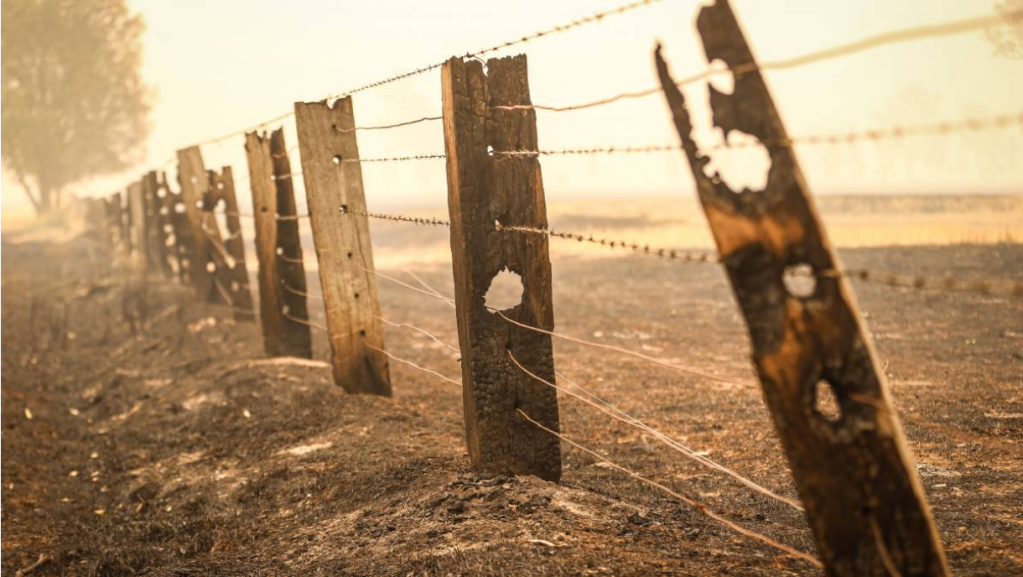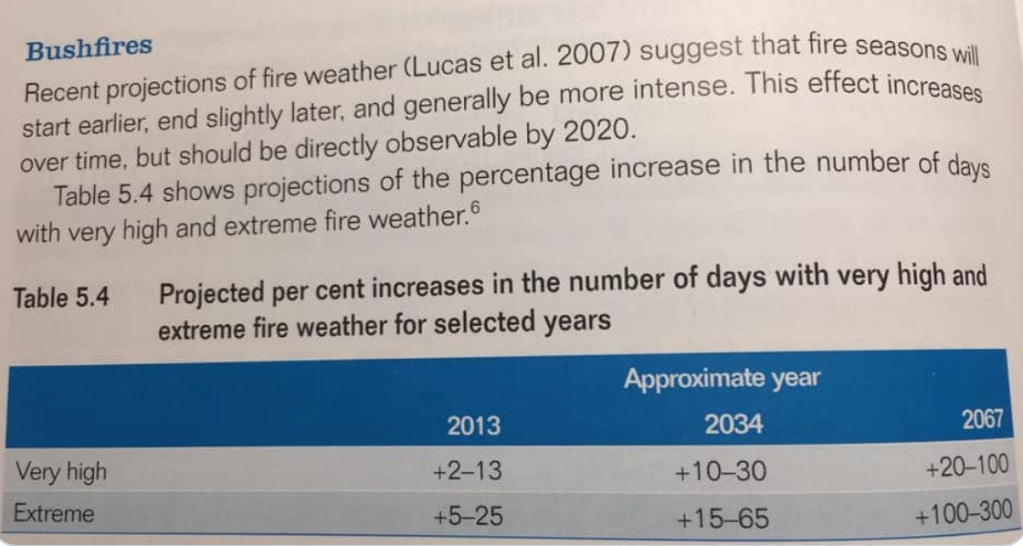
The devastating bushfires across Australia in the summer of 2019/20 provide us with a clear message. Australians – people, businesses, and those who govern us – can no longer take our environment for granted. We have been willfully ignoring the signs so far but that must now stop.
There is much work to do in recovery. Rebuilding, refinancing, infrastructure maintenance, counselling – and the immediate and grisly task of dealing with the incomprehensible loss of animal life both native fauna and livestock. The Prime Minister today announced the allocation of $2 billion towards these efforts, to be managed by a bushfire recovery agency. As for revisiting climate policy though? No.
This is an egregious error, I think, based on the accuracy of climate modelling over the last 50 years. 2020 was even predicted as the time our climate chickens came home to roost. But climate policies are only one tranche in a complex system of policy levers that affect how we experience this new climatic world. In this post, I explore our relationship with land.

Colonial laws
Our colonial legal system, inherited from the English, bundles rights up in parcels attached to individual bits of land. Inside the borders of our ‘property’, we are individually sovereign. Our rights give us the capacity to exclude all others and effectively to do what we like.
Increasingly, we have ceded some of our mini dominion to the State – in terms of planning restrictions, building laws, and more lately, environmental laws more broadly. Overall though, we resist such regulation as impositions on what we see as our absolute right to do as we wish with what is truly ours.
The tension between rights-holders and the State has a long history in the English context. The Crown was, after all, the ‘lord paramount’ of all land in England and frequently sought to usurp rights held in the commons and the forests. As early as 1216, the companion to Magna Carta, the earliest known environmental legislation known as the Forest Charter, spelled out the limits on the Crown’s rights to the forests and protected a range of rights to those lands.
Eventually, the English landscape was transformed, however, through the enclosure movement and ‘property’ became the currency of the wealthy, who had it, and represented a deficit for the poor, who did not. This system was effectively transplanted in Australia, subject to some variation on the ground.
Land – to what end?
Many, notably First Nations peoples in Australia, have been asking now for over two centuries ‘to what end has the State taken this land?’ Certainly, the modern Australian State has benefited from primary industry – pastoralism, agriculture, and mining – all of which have depended on subsidised State grants of land and a significant alteration of the landscape.
The Prime Minister and his ministers refer to these benefits in terms of GDP. This measure is based upon an abstract calculus of the economic activity in a country. If we produce primary products – wool, beef, wheat, coal – and we export more of these than the goods we import, then that is a positive GDP.
But these measures ignore that the land has never been paid for: it was taken. They do not account for land degradation – dryland salinity, loss of topsoil, site contamination, cleared vegetation, water contamination and the destruction of land itself – all of which are a consequence of primary industry. They do not account for the loss of habitat and significant impact on our biodiversity. And they do not account for the economic benefits that might accrue from transitioning from coal.
Land is also used for residential and commercial purposes in cities and towns throughout Australia. Planning laws are enacted to various ends: sometimes they favour developers, other times they seek to uphold environmental and social values. But we see the price of development take its toll on the land regardless, including impact on water catchments, runoff due to concrete surfaces, heating, vegetation loss. As with primary production, the land suffers.
Through both primary production and our metropolises, the land comprising our nation is put to use in a patchwork of ways caught within a variety of legal constructs that segregate one portion from the next. They separate the soil from its vegetation and minerals, the water from the land, and the animals from their habitat. And humans act as lord over this domain in the belief that their human-derived rights amount to control over nature.
Fire knows no boundaries
The fires though, know no boundaries. And now we stand witness to some 14.6 million acres burned since September 2019 (as at 3 January 2020). Nearly half a billion animals killed in New South Wales alone, since September 2019.
In response to this almost unbelievable disaster, some have already started calling for opening up national parks, and State government funding to manage lands in national parks has been waning. Yet such calls simply replicate the problem of our fragmented approach to land.
Our GDP might look OK, but what is the point when our land is dying and our lives are at risk.
In the aftermath of the fires, it is therefore not enough to replace what has been destroyed. In the face of likely increases in the frequency and ferocity of fire seasons, the rebuilding effort must engage with a new way of comprehending our land beyond discrete, bounded parcels. And we must reconfigure our own relationship with land as other than one of dominion. This requires us to unravel the legacy of colonial land laws and to adopt a more mature standpoint as environmental stewards at the very least, or more ambitiously, a standpoint that centres the environment itself.
It is sad that we cannot do anything in such a situation and yes fire now no boundaries and what can we do in such a scenario. Being a lawyer in Brisbane doesn’t mean that I can fight everything. There were these colonial laws then. You are right that a more mature standpoint of the environment should be adopted here.
LikeLike